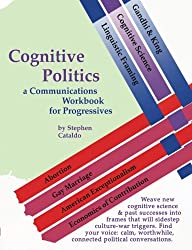Politics today are described as "tribal" — most people start with their allegiances and judge or filter each fact based on those allegiances.

When we encounter a single news story, a single fact — say a veteran having their adopted child torn away over a technicality, or a supreme court justice lying under oath — many people stick with their party lines. The fact, so troubling to the other tribe, just bounces right off their filters: "I don't want to think about this for long, since it threatens my team."
The response by political opponents to this filtering is astonishment and judgment. Which is pretty powerless: pointing out someone's hypocrisy doesn't take away their right to vote. We desire that our opponents see this fact, and switch to our team. We remember this fact with all the others that support our side — they filter it away.
If you want to be effective, you can't make big changes quickly. One fact can't tear down many years' worth of allegiances, and if you try, you just harden people's defenses.
You want to get people to judge politicians based on the facts, rather than judge facts based on politics. This means letting go: if the end of a conversation requires a shift in loyalty, it's too much, and your conversation accomplishes nothing but giving them practice raising their shields. SELF-CHECK: The scales won't move. If you hope the scales will move, you'll probably undo your own efforts.
How can you set a smaller goal: What techniques make facts sticky? How do you keep people focused on the facts, instead of jumping to a judgment that will be based on their allegiances?

Two techniques that work well:
1) Nonviolent Communication (NVC) recommends ending conversations with a request. Most political conversations have an implied request: tell me I'm right, give up all your beliefs and accept my beliefs instead. Not surprisingly, this fails — and leads us to say "facts don't work." But facts that don't require judgment can work. Do you have a tear-jerking story of a child who grew up American, and is being sent to a country where they don't know the language? Don't scream about Trump: don't put Trump on the scales at all. Instead, ask the conservatives in your life if they'd like to work with you to right this wrong.
2) Let people talk past their talking points. Lots of people like to talk if you listen. Lots of people have good hearts. Lots of people have heartless partisan soundbites. They will keep talking past their soundbites and remember their hearts, if they feel heard instead of judged.
